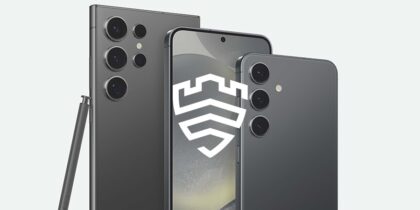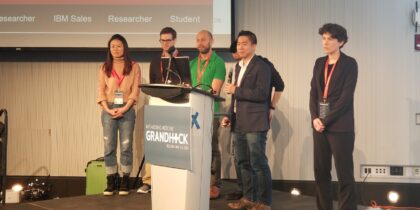Rita J. King, EVP of business development at Science House, recently spoke at Samsung 837 about the value of infusing imagination into business. Here are three key takeaways from this insightful discussion:
1. Artificial Intelligence is Applied Imagination
Artificial intelligence (AI) is on everyone’s minds this year, whether they are entrepreneurs or engineers. AI has moved into our homes and our bedrooms; it tells us if the weather will affect a business trip, and reminds us to pick up groceries. King, however, does not believe intelligence should be referred to as artificial.
“If we think about technology as artificial, it allows us to outsource our ethics to machines, which is very dangerous,” she said.
Instead, she challenged people to think of AI as applied imagination, a combination of ideas and focused execution. It is about dispelling the notion that creativity is nebulous and indefinable, and instead thinking about it as a practical, tangible skill everyone can exercise.
2. Imagination Is the Differentiator
In the past, businesses could differentiate from competitors by developing new technologies. Today, businesses do not have the time or resources to keep up with the rapid pace of invention. They now buy solutions from companies that specialize in innovation.
Use AI to Work Without Barriers
Learn how AI-powered devices enable the future of work. Download Now
If multiple companies can buy the same technologies, then it becomes more difficult to use hardware as an example of innovation. King argued that imagination is the only differentiator for businesses.
3. Innovation Without Imagination Is Directionless
King runs Science House alongside inventor James Jorasch. She asserted that innovation without imagination is directionless, but imagination without innovation is mere philosophy.
The dichotomy between innovation and imagination is exemplified in the transition from the Industrial Age to the Intelligence Age. In the Industrial Age, people clocked in and out, and success was measured in factory output. In many ways, people carried this mindset into the Intelligence Age.
However, the products we create and consume today are far more complex. You can’t always measure the immediate output of an algorithm, and many companies are still learning how to appropriately leverage the masses of data produced by consumer-based products.
Finding the sweet spot between these two ages will be both the challenge and the goal for entrepreneurs hoping to disrupt their markets. The trick is to question assumptions about the tangible elements, and learn more about the intangible elements; doing this will constantly help business reprioritize their focus areas and update thinking as time evolves.
Ultimately, King believes everyone is creative, and that businesses must be if they hope to provide value in the age of imagination.
Learn how artificial intelligence is being used to address today’s global issues.






